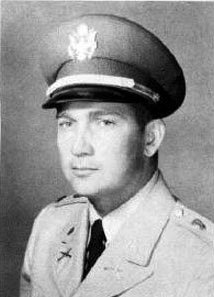Luis Posada Carriles facts for kids
Quick facts for kids
Luis Posada Carriles
|
|
|---|---|

Luis Posada at Fort Benning, Georgia, US, 1962
|
|
| Born | February 15, 1928 Cienfuegos, Cuba
|
| Died | May 23, 2018 (aged 90) Miami, Florida, US
|
Luis Clemente Posada Carriles (born February 15, 1928 – died May 23, 2018) was a Cuban man who lived outside of Cuba. He worked as an agent for the Central Intelligence Agency (CIA), a US government agency that gathers information. The Federal Bureau of Investigation (FBI), a US law enforcement agency, and the government of Cuba considered him a person involved in serious harmful acts.
Posada was born in Cienfuegos, Cuba. He left Cuba for the United States after being involved in activities against Fidel Castro, who was Cuba's leader. He helped plan the Bay of Pigs Invasion, which was a failed attempt to overthrow the Cuban government. After this, he became a CIA agent. He received special training at Fort Benning. From 1964 to 1967, he took part in secret operations against the Cuban government. Later, he joined the intelligence service in Venezuela.
Along with Orlando Bosch, Posada helped create a group called the Coordination of United Revolutionary Organizations. The FBI described this group as an organization that carried out harmful acts against the Castro government. Many believe Posada and this group were responsible for the 1976 bombing of a Cuban airplane. This attack killed 73 people. Posada later said he was involved in a series of bombings in 1997 that targeted popular hotels and nightclubs in Cuba.
He was also accused of being involved in a plan to harm Fidel Castro in Panama in 2000. He was put in jail for this, but the President of Panama, Mireya Moscoso, later officially forgave him. Posada said he was not involved in the airplane bombing or the plan against Castro in Panama. However, he did say he fought to overthrow Castro's government in Cuba.
Later Life and Accusations
In 2005, US authorities in Texas held Posada because he was in the country without permission. These charges were later dropped. When he was released on bail in 2007, the governments of Cuba and Venezuela were very upset. The US Justice Department had asked the court to keep him in jail. They said he had admitted to planning serious harmful acts. They also believed he might try to run away and could be a danger to others.
Some people in the US also criticized his release. An article in the Los Angeles Times newspaper said that by releasing Posada while holding other suspected people at Guantánamo Bay, the US government was acting unfairly.
Personal Details
Posada got married in 1955. He separated from his first wife a few years after moving to the US. He married his second wife, Elina Nieves, in 1963 while he was at Fort Benning. They had a son while living in the US. A daughter was born after the family moved to Venezuela in 1968. Posada and Nieves lived separately for most of their marriage. He also had a long relationship with Titi Bosch, who passed away in 2001.
Towards the end of his life, Posada lived in Miami. He often went to events that raised money for groups that strongly opposed Fidel Castro. He also took part in protests against Castro's government. Among Cubans who had left their home country, he was sometimes called "Bambi."
In November 2016, a newspaper called El Nuevo Herald wrote about Posada. It described him celebrating Castro's death in a Miami restaurant. The article said that Posada, who was 88 years old at the time, had survived cancer and had a stroke. He passed away on May 23, 2018, in Miami, at the age of 90. An article in The Washington Post said he had been diagnosed with throat cancer five years before. His lawyer stated that Posada Carriles died at a special home for veterans run by the government.
See also
 In Spanish: Luis Posada Carriles para niños
In Spanish: Luis Posada Carriles para niños
 | Selma Burke |
 | Pauline Powell Burns |
 | Frederick J. Brown |
 | Robert Blackburn |

